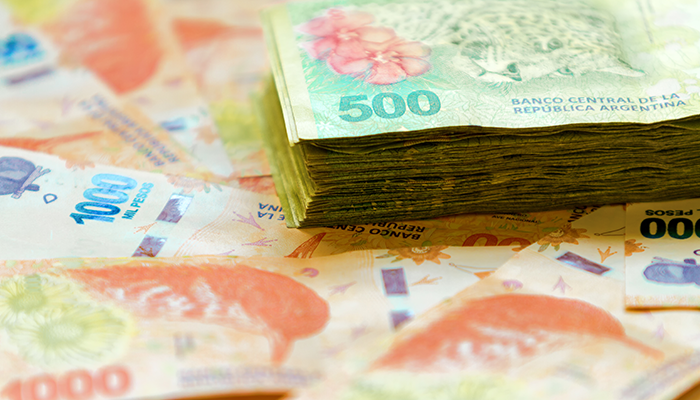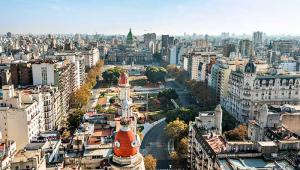web_argentina-peso_shutterstock_1005654421.png

Argentinian peso. ©Shutterstock
The organisation met with the South American nation on Wednesday, as it attempts to avoid a default on $19bn repayment to the fund due later this year.
However, finance minister Martin Guzman said in a press conference that negotiations stalled over a disagreement as to how the nation manages its yearly deficits.
Argentina proposed a programe maintaining deficits over the coming five years, so that “the state can carry out public policies that give Argentina more wealth”, with the IMF preferring faster deficit reduction.
Meanwhile, Guzman said that the IMF presented a program that “with high probability would stop the recovery”
He said: "It [the program] is essentially a program to adjust real spending.”
The disagreement saw Argentine bonds drop by 2% on average the following day, which market traders dubbed as "Black Thursday".
Guzman added that the nation is in agreement with the IMF on improving the level of its reserves, gradual fiscal consolidation and the continuation of capital controls.
Argentina has been in discussion with the IMF since 2020 on restructuring part of the $57bn agreement, after president Alberto Fernandez refused to accept more payments from the fund in late 2019.
At the same meeting, Fernandez added that an agreement with the IMF would not compromise the nation’s economic plan.
He said: “For us it is not possible to achieve the idea of a sustainable debt based on adjustment reasons.
“For us to adjust the economy is to shrink it, stop growing and make the obligations we have with external creditors more difficult.
“Therefore, the word adjustment is banished from the discussion, and for us the secret is to grow.”
Argentina recorded a deficit of 6.5% of GDP in 2020 due to a sharp increase in spending during the Covid-19 pandemic.
The nation intends to reduce the deficit to 3.3% of GDP in 2022, after the economy started a recovery process with expected growth of around 10% in 2021.
An internal investigation from the IMF found that the $57bn agreement with Argentina in 2018, failed to deal with the country’s currency and inflation issues.
Although Argentina adhered to the policies set out in the deal, according to the investigation, they did not ease the South American economy’s struggles and the programme was abandoned in July 2020.













